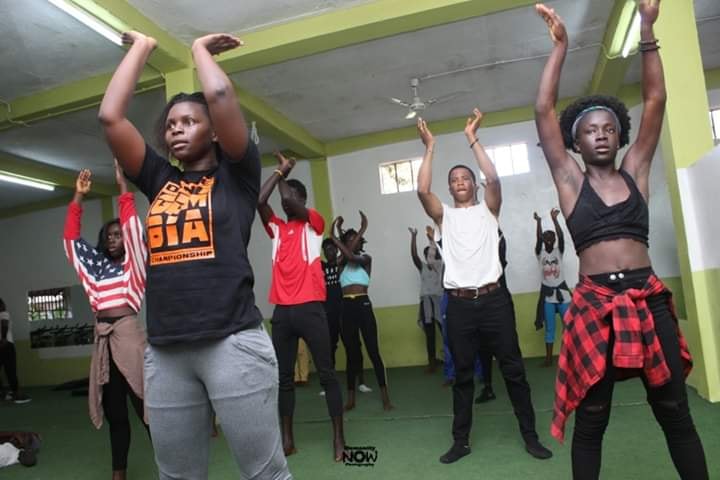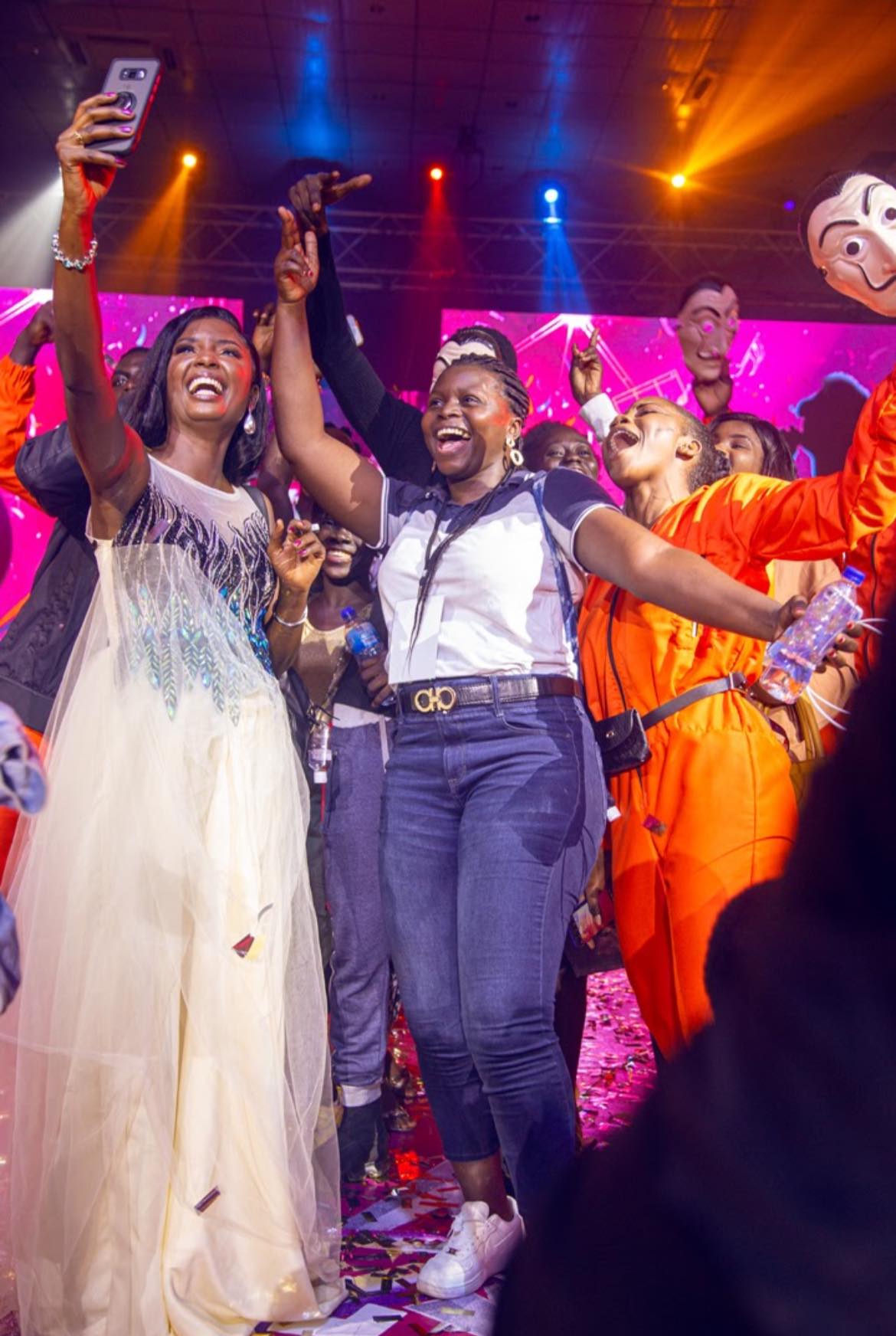"I was drawn to the world of dance at an early age. My mother was a dancer with a ‘70s music band in The Gambia, she encouraged me a lot but it was a self-driven passion that spurred me to follow through her legacy and leave my mark dancing to the rhythms of the beautiful African drums."
Ndey Fatou Jabang (Elektra) is the founder and proprietress of Flex Fuzion Entertainment and Dance Academy, a Dance company and academy offering dance classes to promote a healthy lifestyle and the art of dance as a full-time career thus creating a source of livelihood for young Gambians with a passion for dance. Flex Fuzion is The Gambia's first Dance company grooming and empowering youth in the creative industry.
This led to the formation of the first professional female dance group named ‘Afriq Divas’ and eventually transformed to a company that gave birth to Flex Fusion Dance Academy. Today, Flex Fusion hosts the biggest dance competition in The Gambia dubbed The Dance Gambia Championship, The Gambia’s premier National Dance platform that empowers Dancers for the first time in the history of The Gambia and was launched with a total number of 135 participants ready to battle it out and be crowned the Dance Champion.

Ndey, now the founder of Fuzion Dance Academy and Entertainment, The Gambia’s only dance school, is working to empower youth across the country to express themselves and embrace their traditions in a warm and inviting atmosphere. This, she continues to do through rigorous training & mentoring of young people in the Academy.
“Our classes combine djembe dances from Guinea with Gambian dances like the Wolof and the Jola,” Ndey said reflecting on the breadth of traditions covered in the academy. Ndey and the Dance Gambia Team watching these dances, one can be overwhelmed by the warmth and kinship on display, so natural are the movements and so talented are the performers. But establishing a dance school in the West African country wasn’t easy, as Ndey explains, not least because dance is still viewed in much of The Gambia as a hobby rather than as a career that could provide economic gains for youth.
“People think dance doesn’t pay the bills,” Ndey says. “So I had to work to change minds, to sensitize the community, not only to the importance of dance but also to its role in creating jobs in the country. Our dancers are contracted by musician’s every time to perform in videos, live performances and in some cases serve as extras and get paid for this’’.
To counter the misperception, Ndey first worked to establish an all-girls dance troupe, one that was able to make a living from its work, underscoring that dance not only keeps traditions alive but is also a viable source of income. “Your work has to be rooted in something you really love doing,” Ndey says. “If you’re not passionate about the goals you’re setting, you’ll never achieve them.”
The value of her work extends well beyond her troupe’s performances and her students’ skills. For her, the importance of dance hinges on the people it uplifts and the opportunities it fosters for Gambian youth.

“I want to create a platform in my country using dance. I want to restore hope to each and every one of them and contribute to the growth of the country’s creative industries and change mind-sets regarding dance entrepreneurship in the country.” The EU funded Youth Empowerment Project has been crucial to supporting dance entrepreneurship in The Gambia, the project actively supported flex fusion to host the first ever Dance Gambia Championship which led to the growth of flex fusion dance Academy.
As Ndey sees it, it’s that servant leadership and interest in The Gambia’s youth that gives her work meaning and what gives it motion.
Enjoyed this post by Abdoulie? Share it with others.
View count: 2329